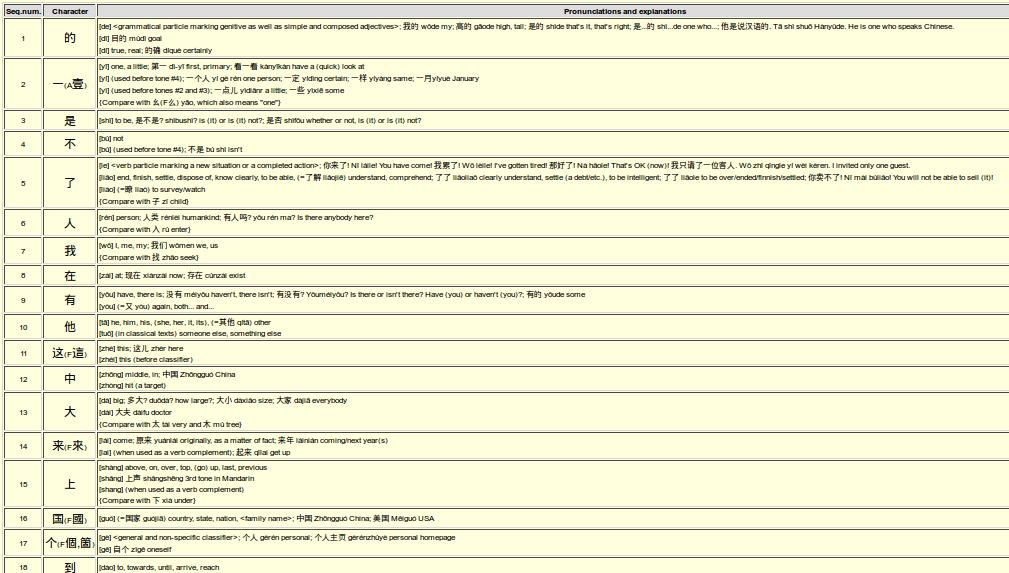The simple answer is: yes.
For a language learning aspect, this way(remembering words) may be boring and result in giving up unless you learn for an important test/exam. If find this boring, try a textbook or an app that let you learn it like a first language.
Update:
The links below contains lists for frequently used Chinese word.
The official Commonly Used Characters in Modern Chinese(2500+1000), this is published in 1988 and discontinued in 2013, since it has only 2500 characters, it may be still useful(covers 99.48% characters in daily use):
http://hanyu.iciba.com/zt/3500.html
The official General Standard Chinese Characters(8105):
http://xh.5156edu.com/page/z6211m4474j19255.html
The official Commonly Used Hanja(1800), selected by South Korea:
http://wenku.baidu.com/view/e1e306649b6648d7c1c74636
The commonly used characters list for elementary school grade 1-6 students, selected by New Oriental, the largest education group in China:
from grade 1 to 6
http://xiaoxue.xdf.cn/ynj/201203/1159876.html
http://xiaoxue.xdf.cn/enj/201203/1159917.html
http://xiaoxue.xdf.cn/snj/201203/1159916.html
http://xiaoxue.xdf.cn/inj/201203/1159915.html
http://xiaoxue.xdf.cn/wnj/201203/1159914.html
http://xiaoxue.xdf.cn/lnj/201203/1159913.html
